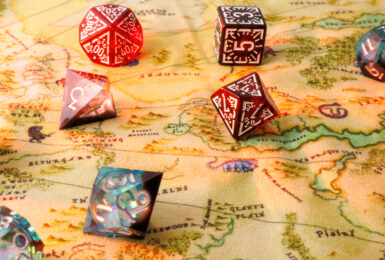
CultureFilm / TVMusicRace
motherf*ck him and john wayne
The year is 2019, another winter day, and John Wayne’s racist comments from a 1971 interview with Playboy, have resurfaced. “With a lot of Blacks, there’s quite a bit of resentment along with their dissent, and possibly rightfully so. But we can’t all of a sudden get down our knees and turn everything over to the leadership of the Blacks. I believe in white supremacy until the Blacks are educated to a point of responsibility. I don’t believe in giving authority and positions of leadership and judgement to irresponsible people.” Wayne said this in response to a question about the grievances expressed by revolutionary intellectual and activist Angela Davis, addressing mistreatment of Black people and being barred from the academy because of her Blackness.
The year was 1989, another summer, and Public Enemy‘s Chuck D rapped the now iconic hip-hop anthem “Fight The Power” as part of the soundtrack to Spike Lee’s legendary film, Do The Right Thing. That PE track included the immortal lines, “Elvis was a hero to most but he never meant shit to me because he’s straight out racist. The sucker was simple and plain,” — to which, without missing a beat, Flava Flav added, “Motherfuck him and John Wayne!” This was 30 years ago.
The more we meditate on Black music, namely hip-hop, the more we notice that Black folks’ lyrics have always be uniquely centered around a message. Which is to say, often Black folks’ lyrical content can be seen as news. We see this with negro spirituals and the possibility that they were used to give warnings and directions to enslaved African people searching for freedom, with Gil-Scott Heron’s reporting on the status of the world and revolution, with Fela Kuti expressing globalization grievances on top of Tony Allen’s drums, and with Ice Cube reporting back to us about day-to-day life in the California hood. It would be silly to engage Black folks’ lyrical offerings as only lyrics and not more. We focus on the aesthetic and sonic genius of Prince’s Purple Rain for instance, but we must also engage the radicalism that can be found in “Sign ‘O The Times,” which laid down grievances over the drug epidemic and how society was distancing itself from a spiritual routine. In music, lyrically, Black is prophetic and informative.
And because I take Black musical and lyrical offerings seriously, I’m not surprised nor moved by John Wayne’s quotes because Public Enemy already told me to reject this sentimental white icon because he was not for me. Simple and plain. Hip-hop served as both entertainment and enlightenment, both my blueprint to the cool and the pedagogy that helped craft my dissonant, critical position with the mainstream. Because my brothers in Public Enemy challenged and implored that I reject these white symbols before I grow attached to something that hates me, which births a whole other type of deeply troubled Black adult that crafted their identity from white supremacist media and culture.
What is worth looking at is the comfort with which Wayne spoke about race and queerness, and understand that he was speaking not just for himself, but for the culture of Hollywood. It was a culture he helped craft and mystify — and helped keep Black people out of. With this interview, it makes sense that decades later Black folks interested in participating in the filmmaking industry are still underpaid and excluded. Because underneath Hollywood’s red carpet are the graves of many deeply bigoted white men just like John Wayne. In the Hollywood sign, metaphorically of course, there are echoes of white supremacist propaganda, homophobia, and misogyny. So, how would one expect freedom flowers of “representation”, “equity” or “inclusivity” to grow from racist soil when Hollywood is straight-up racist. Simple and plain.
Get The Latest
Signup for the AFROPUNK newsletter




